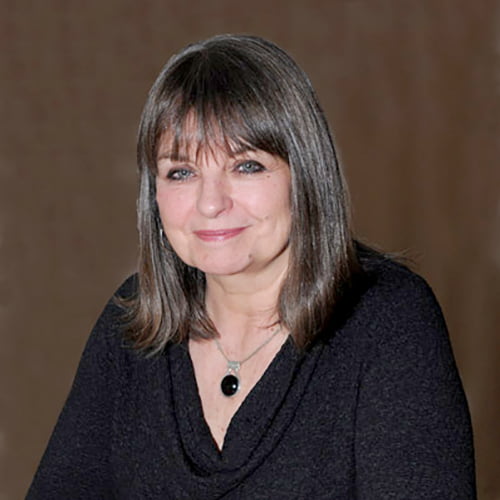How would you describe Strathclyde in three words?
Gallus City Campus
What attracted you to work at Strathclyde?
Initially I worked in the School of Social Work and Social Policy on a secondment basis focusing on domestic abuse in the social work curriculum. I was working in local government at the time. The project I am now working on - Equally Safe in Higher Education (ESHE) - is focussed on tackling gender-based violence on University campuses and grew out of my secondment. Myself and colleagues here in the school were successful in receiving Scottish Government funding to continue researching and progressing this important area of work.
This is when I was appointed to my current post. My appointment seemed like a natural step to take in terms of both the development and growth of this important area of work and also for me personally. The University is a stimulating place to work – that was a big attraction to me when I accepted the offer.
What has your experience been like working here?
My experience working here has been brilliant! The University has phenomenal resources which have supported our work and we have had excellent support from all of the departments we work with whether this is fellow researchers, colleagues in corporate departments or administrative support.
The communication across departments is fantastic, making working on this university-wide project very enjoyable and has also allowed me to build up a good network and collaborative working relationships across campus. It is a very stimulating environment to work in, the range of expertise, skills and knowledge is extraordinary and you are encouraged to explore the best way to utilise these varied resources.
Working closely with other staff and students is another highlight of this job, ultimately the project I am working on affects them greatly, so working together to see successful outcomes is very rewarding.
The University has phenomenal resources which have supported our work.
Do you like working in the city centre of Glasgow?
Yes, the city centre of Glasgow is a great place to work. I'm a Glaswegian and it’s great to working in the city centre again. There is always lots going on and I enjoying being close to so many music, cinema and arts venues and being able to go on to a gig or a movie after work. The campus really is part of the city’s culture.
Why do you like working here?
The best part about working here is the creative, stimulating environment which I find very motivating and encouraging. Ours is an innovative change project focussed on the persistent social issue of gender-based violence. It is a time limited project and we need to work collaboratively across campus and with external organisations to achieve its aims.
There is great enthusiasm from all our partners and a massive drive to make things happen – we do not have the luxury of just talking about these issue, we are putting things into practice and learning a great deal as we go. Adding to this, the people we meet and the partnerships we can build working in the University are great.
What has been your greatest achievement while working here?
I would have to say that my greatest achievement of the last year has been setting up and working on the ESHE project. The most rewarding part about this project so far was achieving all our aims for the first year, receiving very positive feedback from the Equality and Diversity Strategy Committee on the project plan. This has resulted in myself and four other colleagues being in a job for another year!
Anything significant stand out to you about the University of Strathclyde?
The working culture is something which stands out for me. Possibly being from a local authority background, driven by cost saving in a very managed culture, Strathclyde is a place where I have freedom to do my job in the way which will get the best possible outcomes.
From the onset, you are assumed capable of the work you are being asked to do and valued and appreciated by colleagues and management. There is an environment of trust and flexibility which allows me to think creatively and get on with the job. I work best when I can manage my own time and workload. I can do that here.
What has your career progression been like and do you have access to any opportunities working here?
As mentioned, I started with the University on a secondment basis, then became a member of staff when this project took off. I have only been employed here for a year, but my colleagues and I have aspirations to secure more grants to allow us to continue to research and develop other aspects of the work here. I hope to sustain the current project to ensure it is embedded in the University culture.
Development opportunities are out there and there are many different options to think about. The school is also supporting me as I complete my PhD, allowing me to arrange my working hours to suit which for my development is great, and I really appreciate this support and flexibility.
